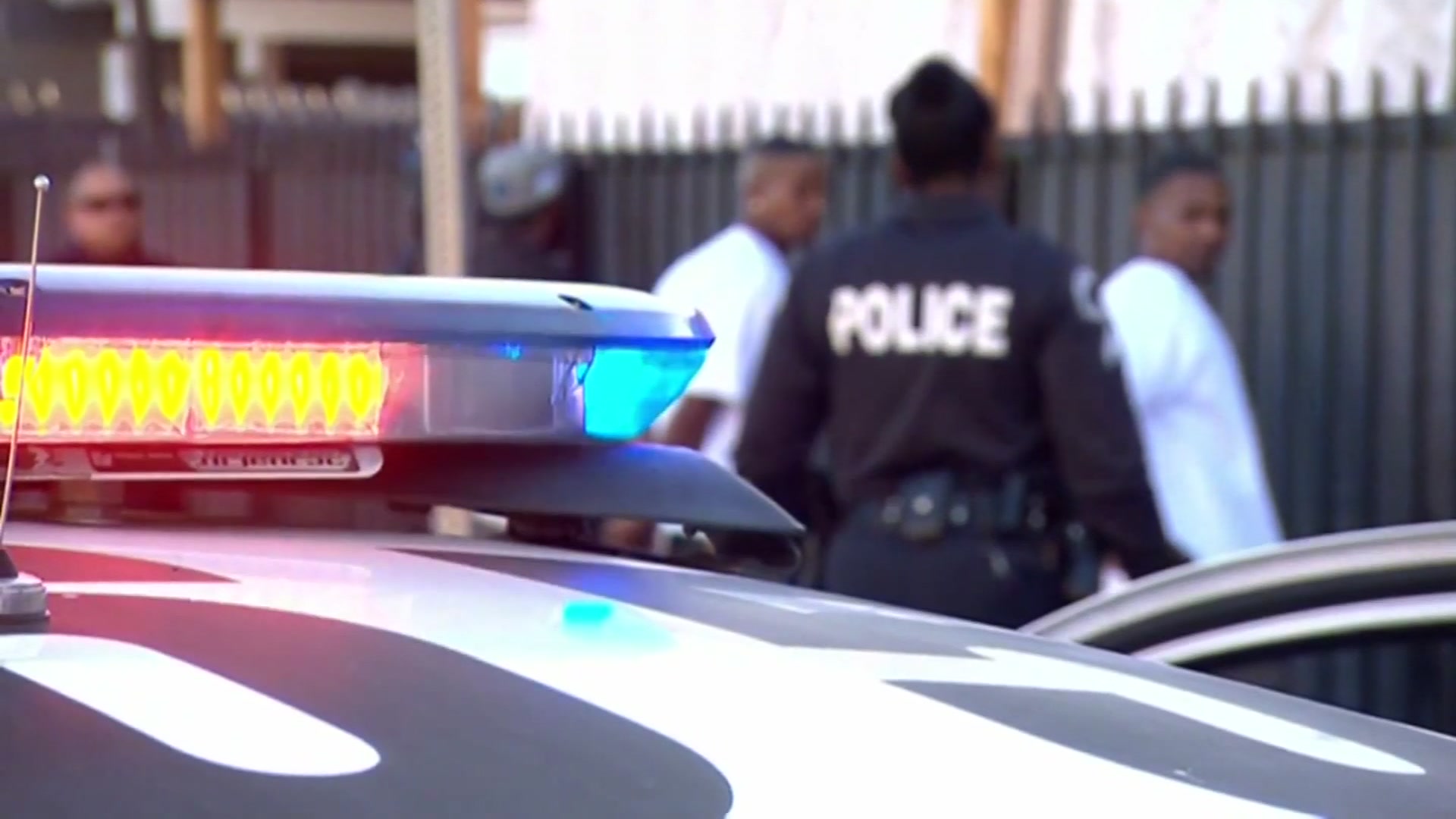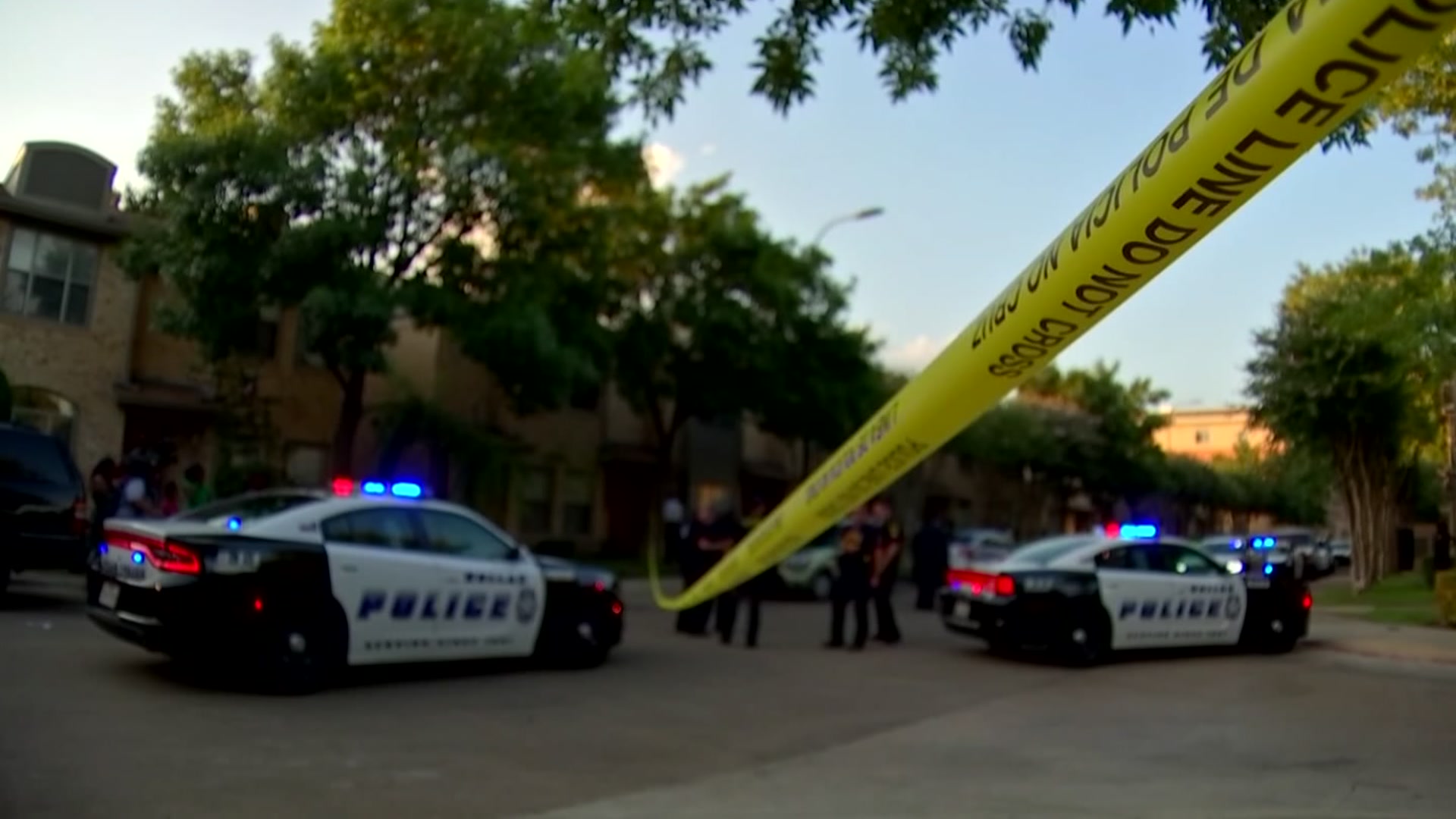Faced with rising crime in her city and cries for the bloodshed to stop, Dallas Police Chief Renee Hall says she is turning toward computerized crimefighting, with “targeted patrols” that may include ramped-up traffic stops.
Such tactics have drawn criticism in other cities where data-driven policing has been implemented, mostly from minority groups who say that, because of the color of their skin, they have been unfairly targeted by police.
NBC 5 Investigates recently went to Los Angeles where concerns were voiced about cops saturating neighborhoods, using computer data to justify their actions.
But Hall, in an exclusive interview with NBC 5 Investigates, said her plan will cherry-pick what has worked in the other cities and stay away from the type of police activity that has alienated some people.
“This is not just the police department waging all-out war on the community, or any individual group in the community."
Dallas Chief of Police Renee Hall
“We’re cautious to make sure that we’re taking the things that work, and leaving out those that don’t work in other cities, so we don’t make their same mistakes,” Hall said.
Hall said that the Dallas Police Department’s computers are already spitting out data that will be used to chart the city, highlighting city-block-size grids where crimes are most likely to occur.
Right now the department is using its own computer algorithm which uses records of past police calls and crime locations to forecast future events. But in the next several months DPD hopes to also implement “Risk Terrain Modeling” which uses data to identify locations with environmental elements that can lure in criminals – like shuttered businesses, or problem liquor stores. Police then bring in other community partners to change the environment.
But areas identified by both computer models will be candidates for ‘targeted patrols’ under the chief’s plan.
If you live in one of the designated high-risk grids, you will likely see more patrol cars…with the chance that the officer in one of those cars could pull you over.
But Hall believes in Dallas the community supports that approach.
“They want to see the police …they want police in their communities,” said Hall, referring to what she said she learned from talking to 15 different community groups throughout the city.
“The traffic stops, there’s no need for them to be tumultuous or adversarial …often times, our traffic stops end in a warning,” she said.
In Los Angeles, police try to predict crime before it happens, in sectioned-off squares in the city, by measuring the number of crimes from the past in each square.
“When I hear people say this is going to reduce crime, anybody with any amount of time in law enforcement laughs because it doesn’t,’’ Jaime McBride, union leader of the Los Angeles Police Protective League, said in an interview with NBC 5 Investigates.
But in Dallas, Hall said, her officers will be given more freedom to decide whether to stay in the designated high-risk zones, or move away to deal with other pressing issues.
“So we’re trusting them in that area, saying here is where the calls for service are coming in, or here is where a narcotics locations has been identified, but also giving them the autonomy to be able to say, ‘Hey chief, we need to move,’’’ she said.
To learn more about crimes occurring in Dallas, click here.
NBC 5 Investigates: Predictive Policing in Dallas
In the predominantly minority area of South Central Los Angeles, community organizer Anthony Robles believes data-driven police work is just an excuse for officers to saturate black and Latino neighborhoods.
“It’s putting us down a scary path, a scary road … it could very quickly lead to authoritarian type state or government,” Robles said.
“And we’re already living in a very heavily militarized policing system… this just adds to the weaponry,” he added.
In Dallas, stepped-up patrols will only be done to “make sure we’re in the areas where the highest calls for service are coming from, where we’re seeing the crime happen,” Hall said.
“It is not an all-out attack on a specific area. It’s identifying those drivers of crime, those areas that are permeating or producing the criminal activity, and go after those particular entities,” she said.
In Kansas City, police use computer data to identify environmental elements that help criminals do their crimes – dark streets and alleys, abandoned buildings, too many liquor stores, to name a few – and work to remove those unwelcome attractions.
The model, known as “risk terrain” policing, has been in place for about 11 months in K.C.
Since that time, crime has gone down in 12 of the 13 zones where police practiced risk terrain tactics, Kansas City police Capt. Jonas Baughman said.
“We’ve been very fortunate…to see some very positive outcomes so far.”
Capt. Jonas Baughman, Kansas City Police Department
But Gwen Grant, president and CEO of the Urban League of Greater Kansas City, said police need to be careful that data-fed crimefighting does not negatively impact minority communities.
“I think that a lot of care should be taken to ensure its equitably deployed,” Grant said.
Chief Hall said her police model will be audited regularly, to ensure that officers do not step out of line in using the computer data.
She said she will be the first to admit it if data-driven policing does not work in Dallas.
But, Hall said she’s going to give it a good try.
“Everything that I do is about the city of Dallas,” she said. “And I’m here for the long haul as long as you’ll have me.”



